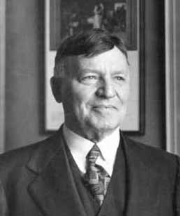Living Well to Dying Well
I am so surprised by the number of people who don’t know The Desiderata. Have you ever read it? I remember that there was always a framed copy of it in our house growing up, and I remember that every time I read it, I had a sense of peace and even a bit of direction when I was feeling lost.
The Desiderata (which means, “Things Desired”, in Latin) was written by Max Ehrmann in 1927. Max Ehrmann (September 26, 1872 – September 9, 1945) was not only a poet and prose writer, but he was also an attorney, so this may be the proof that attorneys have hearts (it’s a JOKE!). This beautiful and pragmatic life advice was written when the author was 55 years old and only became famous after he died. If he had only known how impactful and transformative this piece has been and how many millions of copies of it have been made. It’s known around the world.

The Desiderata is not something I would share with someone who needs comfort. It doesn’t quite hit right for demonstrating compassion over a serious illness or a death. Rather, it’s something I read for MYSELF when I am in need of a boost. The guidance in the Desiderata is timeless. I didn’t read it so much when I was little, and I passed it every day in the hallway of our home (although I did stop to read it from time to time). I read it more now because the words have more meaning. I’ve lived some (54 years!), and I can see how each idea presented in the Desiderata can contribute to a life well lived. I wonder if my mom ever stopped to read The Desiderata when I was young or if it was a frame on a wall that became invisible with familiarity. What inspired her to hang this wonderful piece of prose?
And an even bigger question: Why did Max Ehrmann write it? Was he having an existential crisis? Or did he fall asleep one night, and the muse came and whispered in his ear?
What I like about the Desiderata is that Max Ehrmann is saying that we have a right to take up space and that the space we take up needs to be a welcoming space – from ourselves to ourselves:
“Beyond a wholesome discipline, be gentle with yourself. You are a child of the universe no less than the trees and the stars; you have a right to be here.”
Ehrmann tells us to be ourselves, to speak our truth. You may ask why I have so much interest in living well when my focus is on dying well. I don’t think we die well unless we’ve come to terms with the life that we have had and that we have some sense that we did the best we could. As Maya Angelou famously said, “I did then what I knew how to do. Now that I know better, I do better.” The Desiderata is a gentle nudge in the right direction.
As I am copying the following from a weathered piece of paper I have in an old file, I don’t have a website or publication credit for it, but I am sure you can find it if you look.
The Desiderata
Go placidly amid the noise and the haste, and remember what peace there may be in silence. As far as possible, without surrender, be on good terms with all persons.
Speak your truth quietly and clearly, and listen to others, even to the dull and the ignorant; they, too, have their story.
Avoid loud and aggressive persons; they are vexatious to the spirit. If you compare yourself with others, you may become vain or bitter, for always there will be greater and lesser persons than yourself.
Enjoy your achievements as well as your plans. Keep interested in your own career, however humble; it is a real possession in the changing fortunes of time.
Exercise caution in your business affairs, for the world is full of trickery. But let this not blind you to what virtue there is; many persons strive for high ideals, and everywhere life is full of heroism.
Be yourself. Especially do not feign affection. Neither be cynical about love, for in the face of all aridity and disenchantment, it is as perennial as the grass.
Take kindly the counsel of the years, gracefully surrendering the things of youth.
Nurture strength of spirit to shield you in sudden misfortune. But do not distress yourself with dark imaginings. Many fears are born of fatigue and loneliness.
Beyond a wholesome discipline, be gentle with yourself. You are a child of the universe no less than the trees and the stars; you have a right to be here.
And whether or not it is clear to you, no doubt the universe is unfolding as it should. Therefore, be at peace with God, whatever you conceive Him to be. And whatever your labours and aspirations, in the noisy confusion of life, keep peace in your soul. With all its sham, drudgery and broken dreams, it is still a beautiful world. Be cheerful. Strive to be happy.
by Max Ehrmann ©1927
Download My Free End-of-Life Glossary
This comprehensive guide will help you navigate the often unfamiliar terminology associated with end-of-life discussions. You’ll also receive valuable insights about once a month. No spam ever; unsubscribe anytime. Download your free glossary today.
